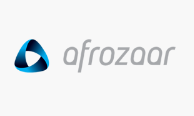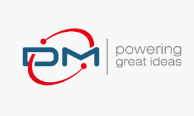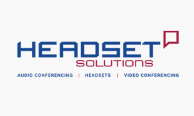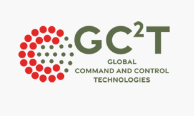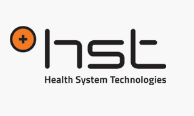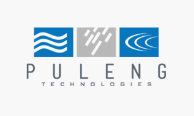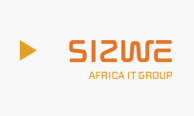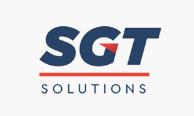Having the courage to make tough choices
OUR TRADE-OFFS
As a business, our ultimate goal is to create maximum sustainable long-term value for our stakeholders. But as the popular adage goes, “there is no such thing as a free lunch”. In executing our strategy, we often have to make difficult decisions, balancing what economists call the opportunity costs. This refers to matching the availability and quality of our capital inputs with the opportunities and their associated expected outcomes, as well as balancing the short- and long-term impacts of our operations. This decision-making process is done in an integrated manner, informed by our four key strategic focus areas and pertinent material considerations.
STRATEGIC FOCUS:
Disciplined strategic Investments
CAPITALS IN PLAY:

UNDERSTANDING THE TRADE-OFF:
As a responsible investor, our core function is to identify and acquire business investments that diversify our portfolio, complement our product and services mix and enhance our customer offering. While we are confident in our investments’ long-term contribution to the Group’s financial performance, the capital outlay associated with purchasing equity or financing the scaling of a subsidiary, reflects negatively on our short-term cash balance.
Further, successful onboarding of a new unit within the Group often requires operational and structural modifications and serves to stretch the short-term demands on our internal resources, particularly our team.
With each investment decision, we strive to balance the costs, risks and anticipated benefits by assessing its strategic fit with the rest of our portfolio, performing thorough due diligence checks and applying stringent financial performance criteria. While investment is by definition a forward-looking exercise with an associated inherent risk, we take our responsibility as a custodian of our shareholders’ capital seriously and continuously strive to deliver above market average returns for them in the short-term while enabling the sustainable long-term growth of the investment portfolio.
We see the completion of an acquisition negotiation not as an end of a project but rather as the start of a long and involved business partnership. While we are far from a “helicopter parent” company mentality and adopt a decentralised management approach with our subsidiaries, our new investments often need operational assistance from our experienced team of Group executives. This is an important trade-off between investing the human and intellectual capital of AYO and growing the long-term manufactured capital value for the Group.
STRATEGIC FOCUS:
Partnerships for growth
CAPITALS IN PLAY:

UNDERSTANDING THE TRADE-OFF:
Our partnership mentality is an underlying business principle for AYO. We believe that creating a collaborative environment for our Group companies and nurturing symbiotic relationships (i.e. investing in social capital) will enhance every aspect of our business.
The sheer diversity of our Group, encompassing all demographic segments, in terms of people, and business units of different sizes and lifecycle stages, provides an enriching experience for our human capital, encourages them to further their skills and stretches their potential. It also enhances our ability to innovate and service our customer base, thus bringing about an upswing in our manufactured and intellectual capital. Ultimately, these collaborations lead to the implementation of successful projects, leading to an increase in our financial capital.
Given the positive impact of collaborative partnerships on so many of our capitals, creating a conducive environment that enables the growth of and symbiosis amongst our business units, is paramount to our future success. Thus, we continue to invest time, energy and resources to strengthening relationships and creating platforms for joint projects within the Group. During the reporting period a new management layer of Group executives was created with the mandate to support the stable of subsidiaries within their
respective disciplines and drive communication and shared projects amongst the units. We have already seen a number of effective implementations to date and look forward to reporting on more of their successes in the future.
STRATEGIC FOCUS:
Talent development
CAPITALS IN PLAY:

UNDERSTANDING THE TRADE-OFF:
Continual education, up-skilling and re-skilling carries more than high financial costs. It requires significant time investment from the employees and puts pressure on their available time as they need to balance work and training commitments. Yet, we believe that no investment in the further development of our talent is too big, as it not only has positive influence on our intellectual and manufactured capital, but also benefits the employees in their personal capacity and also instils loyalty and commitment (social capital).
As a leading business enterprise and a good corporate citizen, we are also deeply committed to creating value for the broader community as well and have identified talent development as a priority business objective not just within but outside the organisation. Our financial investment and partnerships with key NPOs saw the successful launch of a new science lab at Kulani Secondary School in Langa and a number of other educational projects, which are described in more detail in Our Impact section of this report.
These initiatives enable us to not only advance the promotion of UN SDG 4: Quality Education and generate positive brand associations and goodwill, but also to balance the short- and longterm value of our talent development investment. By giving young, underprivileged learners access to world-class science facilities we aim to inspire their love for learning and look fondly at them while they flourish into their full potential. It makes us proud to be a part of the developmental journey of our future leaders.
STRATEGIC FOCUS:
Reputation management
CAPITALS IN PLAY:

UNDERSTANDING THE TRADE-OFF:
A brand’s reputation is its most important asset. Positive brand perception builds confidence, inspires loyalty and ultimately, leads to higher revenues. Thus, it is one of AYO’s strategic priorities to establish itself as a respected thought leader in the technology space and an admired industry frontrunner.
Building a strong reputation requires more than just “doing the right thing”. It involves commitment, engagement with peers and stakeholders and consistent communication, which economically translates to human and financial capital outlay. The social and intellectual capital gains, however, more than offset such investment. In the technology industry specifically, where a company’s assets
are primarily based on intangible properties, a strong brand can exponentially increase the value it creates for its stakeholders.
While we have always prioritised integrity and honesty in our operations, we believe we could improve on the publicity of our good ethics and industry knowledge. As we grow into our business leadership standing, we make a concerted effort to engage with our audiences (customers, industry peers, business community, media) and open conversations, voice insights and opinions, share successes and address challenges together. We understand that respect needs to be earned and it is a long road we have embarked on, so we will continue to make concerted efforts to grow our social capital in this way. After all, we cannot put a price on growing our brand value.

